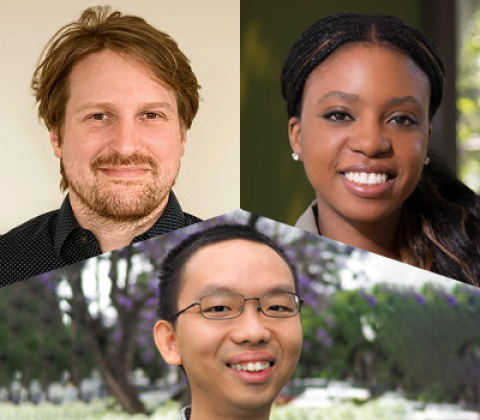Interdisciplinary Initiatives Program Round 12 - 2024
Project Investigators:
Matthias Garten, Microbiology & Immunology and Bioengineering
Michaëlle Mayalu, Mechanical Engineering
Xiaojing Gao, Chemical Engineering
Abstract:
Engineered biology needs control to make the engineered functions safely available in the environment. However, for most organisms, generally referred to as non-model organisms, we have very limited knowledge about the mechanisms that would allow control and self-limit growth. With our project we want to address this critical lack of control tools.
As a specific example, delivery of treatments in the form of living cells to a patient is extremely desirable since much functionality can be programmed into biological matter. For instance, introducing cells as artificial glands that sense a metabolic parameter (like glucose levels) and release insulin in response could replace the function of the pancreas in diabetes. Parasites are the ideal vehicle for such treatment. They occupy unique niches in their hosts and are self-renewable, thus sustainable, vehicles for cures. Indeed, an obstacle for tissue engineering and organ transplants is rejection of foreign tissue while parasites evolved to circumvent the immune system. Parasites can be genetically engineered without altering the host genome, avoiding cancer as a side effect as encountered when engineering host cells. The project will establish strategies to control the growth of the malaria parasite, addressing the largest roadblock developing parasites into a biomedical engineering tool.




